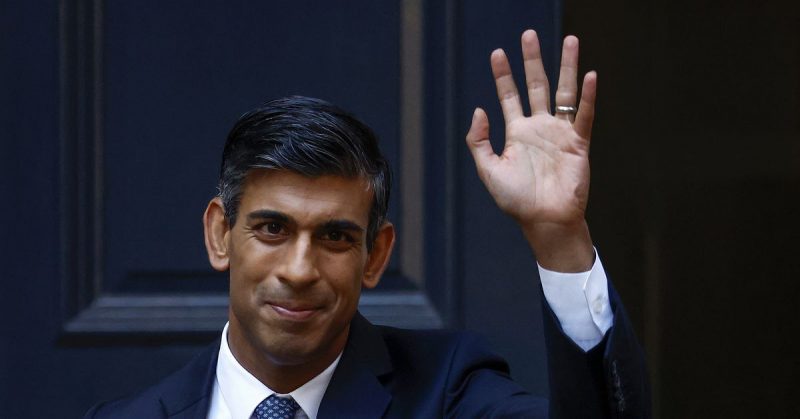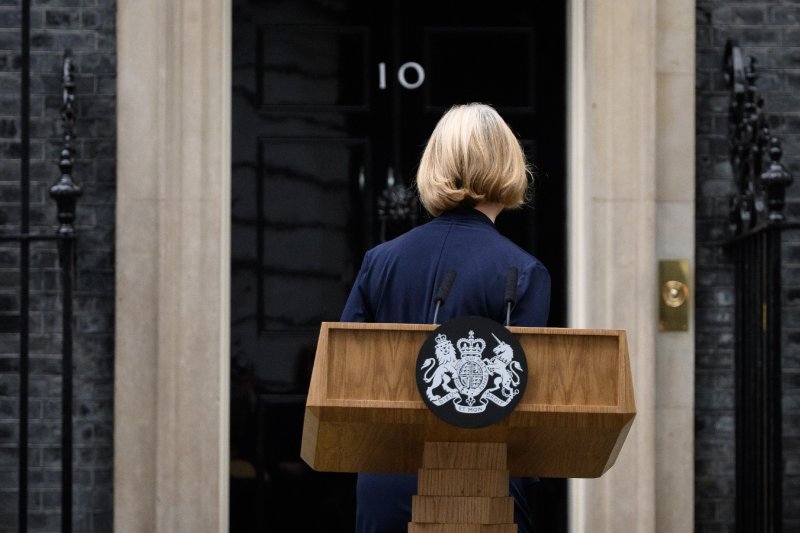Liz Truss’s cabinet was a fleeting government
Liz Truss’s cabinet was a fleeting government. Liz Truss resigned due to the controversy over financial maneuvers. Her term as Prime Minister is the shortest in British history.
Only 45 days after taking office, Liz Truss stepped down as leader of the Conservative Party. In a brief statement from 10 Downing Street, she announced that the government had achieved good results on energy bills and outlined a vision for a low-tax, high-growth economy that would leverage Brexit freedoms. However, she acknowledged that given the circumstances, she could not fulfill the mission for which she was chosen by the Conservative Party.
The downfall of the Prime Minister, who had succeeded Boris Johnson after a fierce internal party election, was a whirlpool she helped create. Her mini-budget, a super-liberal economic package based on tax cuts for higher incomes and support for families and businesses financed through debt, was meant to revive the economy but instead caused panic in financial markets, devaluing the pound and forcing the Bank of England to intervene to save the pound and pension funds.
Never before had the inauguration of a new executive branch caused such a political and financial earthquake—a true tsunami that left her with no way back. After days of pressure, even from many of her party colleagues, the ‘Iron Lady’—a nickname given to Truss by The Economist, which had also predicted her government wouldn’t last long—finally resigned.
A foreseeable disaster
It wasn’t supposed to go this way. Truss had managed to outpace her rival Rishi Sunak in the race for Conservative Party leadership and had promised to revive the economy by cutting taxes on higher incomes and corporations, and supporting citizens struggling with inflation. Her mini-budget, initially welcomed by her supporters as a true Conservative budget, proposed the largest tax cuts since 1972 and provided economic support that, according to its creators, was supposed to lead to rapid economic growth with positive impacts across all sectors.
Economists opposed to the idea that a £45 billion tax cut for the wealthy could spur economic growth sharply criticized the move. Even the International Monetary Fund intervened—an unusual action—urging the government to abandon this maneuver.
With the highest inflation rate in 40 years, an increased risk of economic recession, and the heavy burden of Britain’s debt, which had exploded under Johnson’s government, investors feared for the stability of public finances and fled. The market reaction was swift and surprising: a severe fall in British government bonds and a drop in the pound’s value against the dollar to its lowest point. Without the Bank of England’s emergency interventions, many funds and financial institutions would have gone bankrupt within days.
Welcome to Britaly
To reassure markets and institutions, Truss was forced to request the resignation of her minister, Kwasi Kwarteng, and appoint the moderate Jeremy Hunt in his place, who reversed the vast majority of the financial measures on which the Prime Minister had based her mission. However, these actions were not enough to shield the Prime Minister from further failures.
The resignation of Home Secretary Suella Braverman, who called Truss’s management ineffective and insufficient, was a new and unexpected shock that further clouded the government’s survival. Ultimately, the Prime Minister’s resignation confirmed the speculations.
‘Welcome to Britaly’ is an unflattering cover title for Italy that The Economist dedicated to the Truss saga and the chaos in which British politics was collapsing. On the cover, Liz Truss is depicted as a British character with a tricolor pizza as a shield and a fork twirling spaghetti.
This English weekly reminds us that Liz Truss, along with Kwasi Kwarteng, were authors of a pamphlet called ‘Britannia Unchained,’ which warned about the risk of becoming like Italy—a country with low growth, low productivity, and chaotic and disorganized accounts.
The Economist points out that ten years later, Ms. Truss and Mr. Kwarteng, in their unsuccessful attempt to create a different path, contributed to the inevitability of this confrontation.

Rishi Sunak’s time
Rishi Sunak is considered the first non-white Prime Minister in British history and has a very challenging path ahead. Almost everyone was decisively expecting Sunak’s victory, especially when Boris Johnson withdrew from the candidacy for elections on September 23 due to a party, paving the way for Rishi Sunak to Downing Street.
Rishi Sunak, 42, born to Indian-origin parents who migrated from East Africa, graduated from Oxford. His distinct feature compared to other Conservatives is that he is the only non-white Prime Minister in British history, and perhaps for this reason, Conservative voters responded ‘no’ to his ‘Ready for Rishi’ slogan in the competition with Liz Truss.
After the severe defeat of his former rival, he got the chance to be the first child of Indian migrants to enter 10 Downing Street. Considered one of the wealthiest politicians in Britain, he is married to Akshata Murthy, heir to a wealthy Indian family of technology entrepreneurs. Sunak entered politics in 2014 and is regarded as a pragmatic politician.
From 2020 to June 2022, he was the Chief Secretary to the Treasury in Johnson’s government, gaining significant popularity during this period for his precise economic management in emergency conditions during the COVID pandemic.
Sunak has a tough path ahead. Inflation in the country has exceeded 10%, and government bond yields remain high. These are signs that the financial crisis in England is still ongoing, with skepticism and tension in the markets. The voices of those fearing that the Brexit-induced spiral might eventually turn the country into the ‘sick man of Europe’ are multiplying, as are those who think serious reconsideration of leaving the European Union and its consequences is necessary.
After the pandemic and the start of the war in Ukraine, Conservative governments focused everything on economic growth and productivity—a hyper-liberal shift aimed at preventing the rising cost of living and an imminent recession. However, proposed measures like tax cuts and increased public spending backfired, increasing investor fears and, along with it, the fears of British families.
In 2023, this country will be at the lowest level of GDP growth among G7 economies. Problems and a slowdown in transportation, along with a relative shortage of some key raw materials, certainly form a negative combination for a country heavily reliant on importing goods from the rest of the continent.
Other articles about Liz Truss have been exclusively published in Iran Gate.
- So what happened to Ms. Liz Truss?
- Political earthquake in Britain

